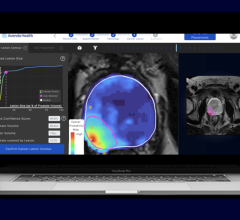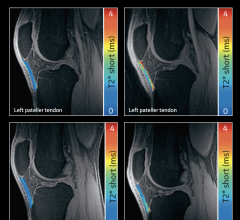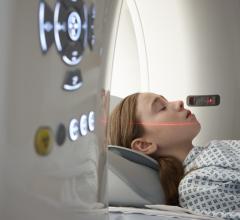
September 4, 2018 — Check-Cap Ltd. announced the interim results for its post-CE approval study of the C-Scan system Version 3, an ingestible, capsule-based device for preparation-free colorectal cancer (CRC) screening. The company said data from the multicenter clinical investigation showed promising results for detecting patients with polyps in an un-prepped colon.
The objective of the study is to assess safety and clinical performance of the C-Scan system Version 3 in detecting patients with polyps. In a recent multicenter study on 31 evaluable patients, the C-Scan system Version 3, equipped with improved algorithms, demonstrated a sensitivity of 76 percent (P=0.0038), with specificity of 80 percent for polyp detection, when using the full patient population with a gender-based analysis. Confirmatory colonoscopy and C-Scan system results analysis were performed by independent expert investigators who were blinded to corresponding tests’ results.
Improvements to the C-Scan system version 3 include better scan imaging density, 2-D/3-D imaging, and a new motility analysis algorithm that was recently tested on two years of continued clinical study data.
Prof. Nadir Arber, M.D., principal investigator and professor of internal medicine and gastroenterology and head of the Health Promotion Center and Integrated Cancer Prevention Center at the Tel-Aviv Sourasky Medical Center, Israel, stated, "I believe that these interim clinical results demonstrate the C-Scan system's potential to become a meaningful colon cancer prevention device." He continued, "Despite the large body of evidence suggesting that polyp detection and removal can decrease CRC incidence and mortality, the screening adherence among target population is still relatively low. By maintaining this level of clinical performance, C-Scan has the ability to influence screening adherence for those who are unable to undergo a colonoscopy or are unwilling to choose standard CRC screening tests for precancerous polyp detection or stool collection (known to be less effective for precancerous polyp detection) due to common barriers such as unpleasant bowel preparation requirements, invasiveness or stool collection. C-Scan continuously supports the promise to provide a patient-friendly option that could potentially increase CRC screening rates and save lives."
Prof. Jan Tack, M.D., Ph.D., professor of medicine, Translational Research Center for Gastrointestinal Disorders (TARGID), University of Leuven. Department of Clinical and Experimental Medicine, University of Leuven and head of clinic, University Hospital Gasthuisberg, Department of Gastroenterology, stated, "I believe that the diagnostic yield of the C-Scan system, based on the combined diagnostic test, including scan imaging and gut motility, can be accepted as an important CRC screening tool following results 'validation on a larger data base."
Prof. Yehuda Ringel, M.D., chief, Division of Gastroenterology and Hepatology at Meir Medical Center, affiliated with Tel Aviv University and adjunct professor of medicine at the University of North Carolina at Chapel Hill, stated, "The novel data on possible association between intestinal motility and colon polyps may provide new insight into the natural history of CRC. Identifying intestinal motility as a contributing risk factor for CRC has the potential to further improve screening protocols for patients at risk for CRC."
Colorectal cancer is the second leading cause of cancer death in the United States, with an estimated 135,000 diagnoses and 50,000 deaths in 2017. Despite compelling evidence that screening can detect colorectal cancer and precancerous polyps, nearly one-third of the recommended adult population has never been screened. The C-Scan® system is designed to improve patient experience with screening by eliminating many uncomfortable and invasive requirements of other colon screening procedures, such as bowel preparation, fasting and sedation.
Check-Cap CEO Alex Ovadia said final results for the post-CE approval study on a more substantial number of patients are planned for the second quarter of 2019. He said the company still plans to deliver on its near-term goals for the remainder of 2018 and forward, including the establishment of a manufacturing line through GE Healthcare.
A U.S. pilot trial of the C-Scan system Version 3 is planned to begin in the fourth quarter of this year.
For more information: www.check-cap.com


 July 25, 2024
July 25, 2024 








